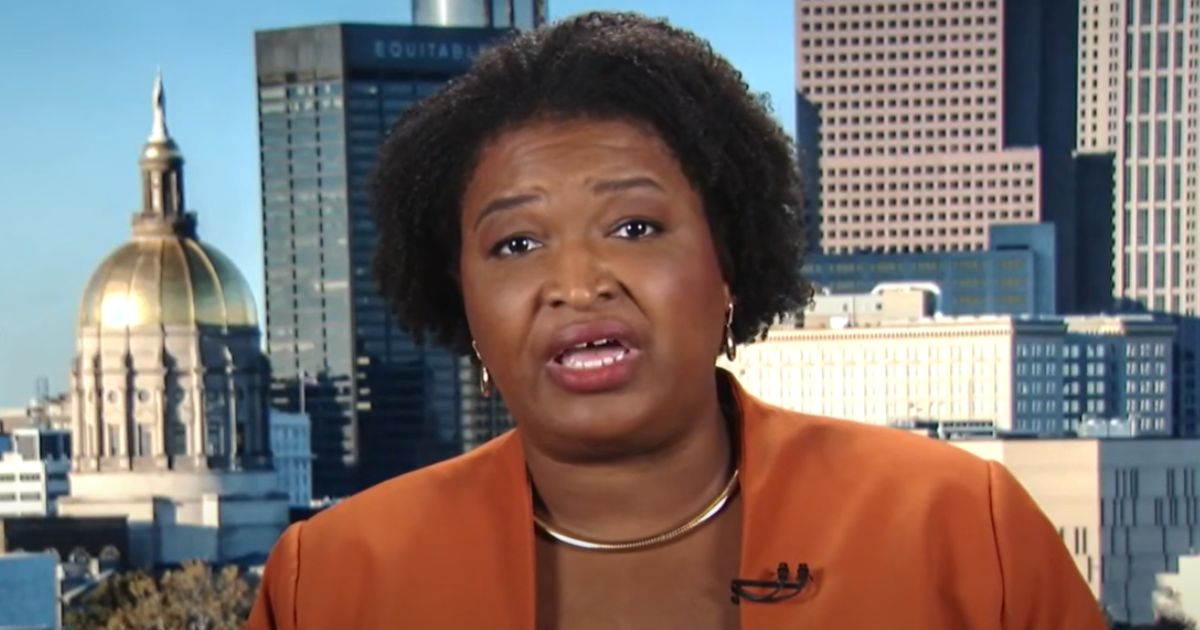A startling revelation has emerged involving a nonprofit linked to Stacey Abrams and a substantial financial award from the Biden administration’s Environmental Protection Agency (EPA). Power Forward Communities, a fledgling organization with meager reported revenue, astonishingly secured $2 billion from the EPA’s Greenhouse Gas Reduction Fund. This raises questions about the oversight and decision-making processes of the current administration.
Lee Zeldin, the EPA administrator, has been vocal about his findings, highlighting the lack of transparency in the allocation of funds. He revealed that $20 billion was strategically placed in an external financial institution, reducing federal oversight. Zeldin described this maneuver as unprecedented in EPA history, suggesting it was designed to rapidly commit funds with minimal scrutiny.
Eric Thompson Show Podcast
The allocation of these funds has sparked significant controversy, particularly due to the involvement of Power Forward Communities. This organization, which reported only $100 in revenue during its early months, is now responsible for distributing millions in taxpayer dollars. Critics argue that this reflects a broader pattern of financial mismanagement under the Biden administration.
Investigative reporting by Project Veritas played a key role in bringing these issues to light. Undercover footage captured EPA Advisor Brent Efron discussing the agency’s financial strategies. Efron’s comments indicated a deliberate effort to channel funds to climate organizations, likening it to “throwing gold bars off the Titanic.”
Zeldin’s team has been diligent in tracing these “gold bars,” uncovering the startling allocation of funds. Out of the $20 billion, nearly $7 billion went to a single entity, the Climate United Fund, raising further questions about the distribution process. The lack of transparency and oversight continues to fuel skepticism and concern among taxpayers.
The role of Power Forward Communities as a pass-through entity has drawn particular scrutiny. With direct ties to Stacey Abrams, a perennial Democratic candidate, the financial windfall has political ramifications. The grant was awarded mere months after the organization’s inception, raising eyebrows across the political spectrum.
Conservative outlets like Fox News and Newsmax have reported extensively on this issue, emphasizing the need for accountability. They echo Zeldin’s concerns about the decision-making process, questioning the rationale behind awarding such substantial funds to a nascent nonprofit. The situation underscores a broader critique of the Biden administration’s environmental policies.
The EPA’s actions have also raised legal questions about the proper use of taxpayer funds. Critics argue that the funds should have been subject to more rigorous oversight. The involvement of outside financial institutions in managing the funds adds another layer of complexity to the issue.
Zeldin’s investigation has sparked calls for increased transparency and accountability within the EPA. There is a growing demand for answers regarding how such a significant amount of taxpayer money was allocated. This case has become emblematic of broader concerns about fiscal responsibility in government.
The revelation has fueled a broader debate about the role of government oversight in environmental policy. Many conservatives argue for a more restrained approach, emphasizing fiscal responsibility and transparency. This issue has become a rallying point for those advocating for reform within the EPA.
As details continue to emerge, the public’s trust in the EPA’s decision-making processes is being tested. The potential implications of these financial maneuvers are significant, both politically and economically. Stakeholders across the political spectrum are calling for a comprehensive review of the EPA’s financial practices.
The controversy has also highlighted the importance of watchdog organizations in maintaining government accountability. Project Veritas and other investigative groups have played a crucial role in bringing these issues to light. Their work underscores the need for vigilant oversight in safeguarding taxpayer funds.
This unfolding story serves as a reminder of the critical role that transparency and accountability play in government operations. It highlights the necessity for rigorous checks and balances. As the situation develops, there will likely be continued scrutiny of the EPA’s financial practices.
Public reaction to these revelations has been mixed, with many expressing concern over the apparent lack of oversight. The political implications for the Biden administration could be significant, as it grapples with the fallout. The situation underscores the importance of maintaining public trust in government institutions.
The allocation of funds to Power Forward Communities may become a focal point for political debate. The involvement of notable political figures like Stacey Abrams adds an additional layer of complexity to the narrative. This development has the potential to impact future discussions on environmental policy and government spending.
Conservative commentators continue to question the motivations behind such financial decisions. They argue that taxpayer money should be managed with the utmost care and transparency. This case is likely to remain in the spotlight as more information comes to light.
The situation remains fluid, with ongoing investigations into the EPA’s financial dealings. As more details emerge, the public and policymakers alike will be watching closely. The outcome of this controversy could shape future policy decisions and government practices.
The financial award to Power Forward Communities is a stark reminder of the complexities of government funding. It raises important questions about accountability and oversight in federal agencies. The ongoing scrutiny of this case will likely have lasting implications for the EPA and beyond.




Nasty Stacy and her you didnt think she was on welfare…PFFT
“It was only RESTING in that account! Resting!”
Father Ted